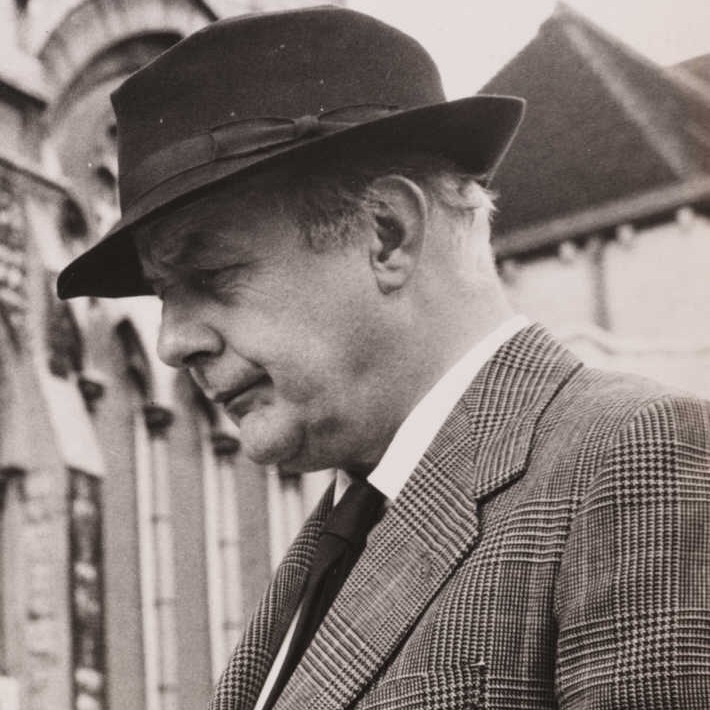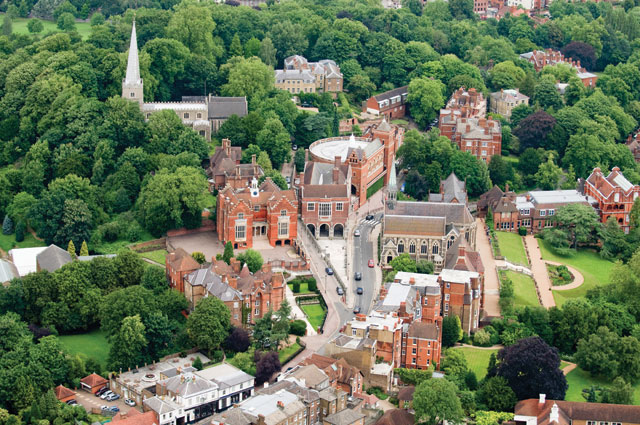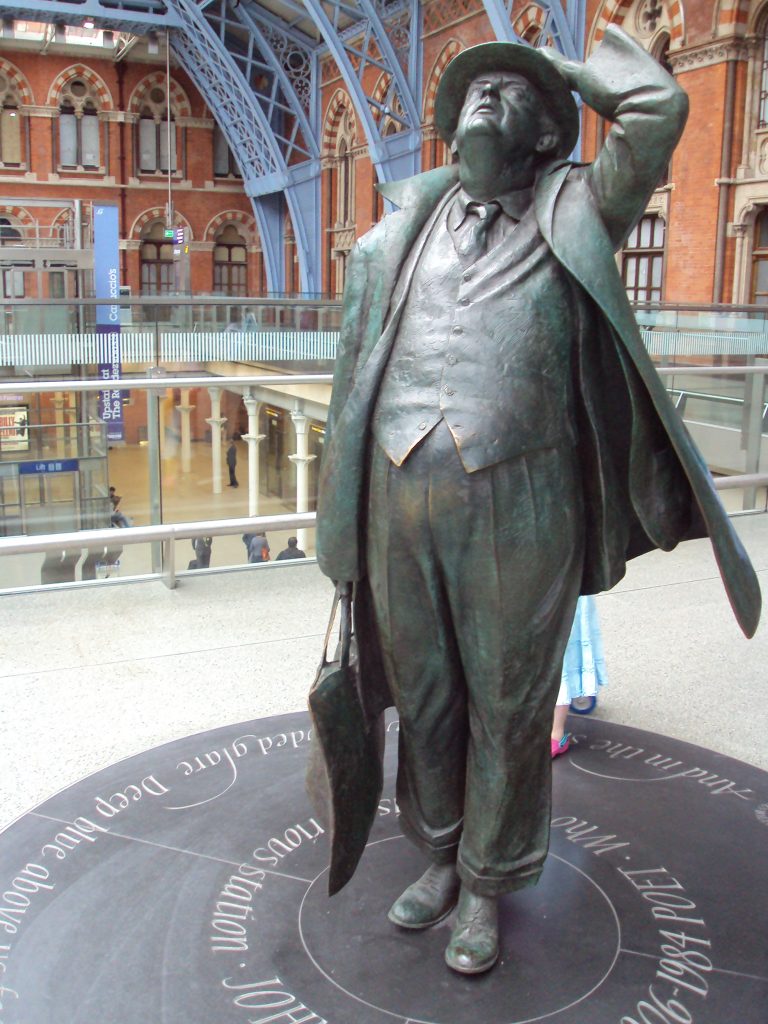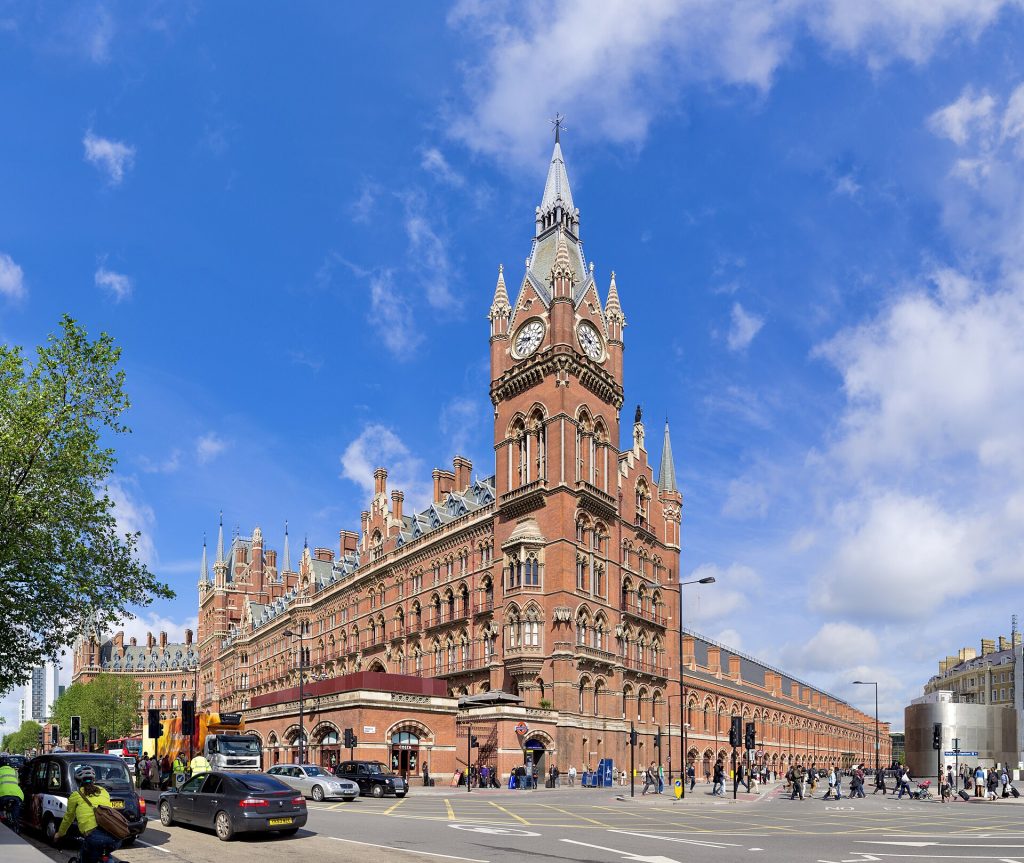No poet has more affectionately – or more precisely – captured the essence of the Home Counties than Sir John Betjeman.
Eccentric and endearing, Betjeman wrote of lawn-mowers and lunchtimes, of red-brick houses and commuter railway stations. To him, the suburban commuter belt of the south-east was a landscape of quiet drama and gentle comedy.
Poet of Place and Protest

Born in London’s Highgate in 1906, Betjeman was, in many ways, the product of the Home Counties himself. Though a Londoner by birth, his heart and his poetry found their home in the metroland fringes – those in-between spaces, neither city nor countryside, where he found his poetic voice.
And his feelings were similarly mixed. He celebrated churches and garden suburbs, but he was never blind to the creeping tide of soulless development. Nowhere is this more powerfully – or wittily – expressed than in his poem, Slough with its famous opening line:
‘Come, friendly bombs, and fall on Slough!
It isn’t fit for humans now…’
Written in 1937 as a lament for what he saw as the desecration of once-rural Berkshire, the poem was a scathing protest against industrial sprawl and the homogenisation of place.
Betjeman saw the town of Slough, just beyond the outskirts of West London, as the embodiment of a blander Britain, stripped of its character and covered in concrete. It’s an image that Slough has never shaken off, and it’s thanks in part to Betjeman’s mournful caricaturing of the town that Ricky Gervais’s comedy series, The Office, was set on a Slough trading estate.
Finding the Sacred in Suburbia

Though often read as cruel, the poem was rooted in real dismay. Betjeman, for all his humour, was a conservationist at heart. He had a tender belief that towns and landscapes held a collective memory. In the Home Counties, he found his battleground where progress collided with preservation, and he took up arms with verse rather than vitriol.
However, much of his poetry reads like a love letter to the region’s understated charms and hidden quaintness. The commuter train trundling past cricket greens, the bicycle leaning against a privet hedge, the vicar’s wife pouring tea.
In Harrow-on-the-Hill, he wrote of a view so beautiful that ‘a world invisible we view’, while Middlesex conjures a lost pastoral charm now lost beneath tarmac and housing estates.
Broadcaster and Builder’s Friend

Where others saw dullness, the creeping grey of concrete and mass production, he found dignity and humanity in everyday life. His fondly remembered Metroland broadcasts on the BBC celebrated not only the built environment of the Home Counties but the rituals of their residents – the bingo halls, the model railway clubs, the parish fêtes. He gave voice to a quietly lived Englishness that many commentators dismissed as dreary.
This affection was never naive and he was by no means blind to the risks of sentimentality. His verse is peppered with loss and longing, with the knowledge that the England he adored was, even as he wrote, slipping away.
Appointed Poet Laureate in 1972, Betjeman brought to the post a populist touch, writing with joy about everything from royal occasions to Cornish coastlines – but always, somehow, returning to the Home Counties.
He asked England to look again at the things it took for granted: the mock-Tudor houses of suburban Pinner, the railway arches of Reading, the Norman spires of village churches. He saw what developers and planners missed – the beauty and identity found in the modest and the mundane.
A suburban legacy

Betjeman’s interests extended far beyond poetry. His campaigning for architectural conservation led to the saving of countless buildings, including London’s epic St Pancras Station. It is no accident that a statue of the poet now greets travellers at the station he helped rescue.
In his final years – spent largely in Cornwall until his death, aged 77, in 1984 – Betjeman never forgot his beloved Home Counties and he continued to write of Sunday roasts and sash windows, the Anglican liturgies and slightly dusty drawing rooms.
Betjeman’s vision was of an England that is not quite gone, but somehow always going. He saw a purpose in nostalgia, reminding us of the value of heritage, of ordinary life, and of a sense of place rooted in memory.
